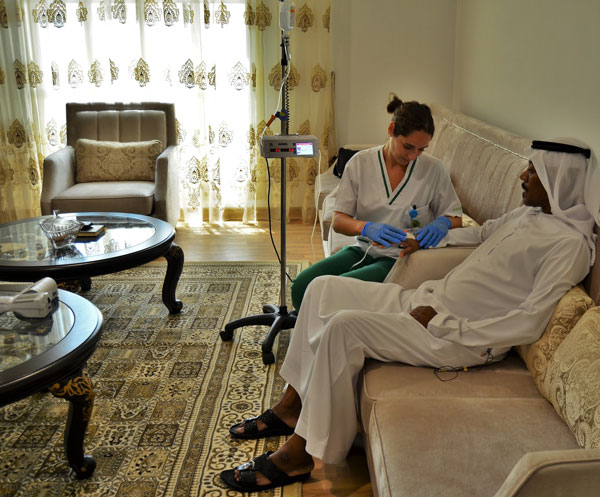 Diabetes, the leading healthcare challenge of the 21st century, has today reached epidemic proportions. World Diabetes Day marked annually on November 14th, aims to create awareness and address the growing concerns about the escalating health threat posed by this condition.
Diabetes, the leading healthcare challenge of the 21st century, has today reached epidemic proportions. World Diabetes Day marked annually on November 14th, aims to create awareness and address the growing concerns about the escalating health threat posed by this condition.
Did you know? If you have diabetes, your chances of having a stroke are 1.5 times higher than in people who don’t.
The connection between diabetes and stroke has to do with the way the body handles blood glucose to make energy. Your pancreas produces a hormone called insulin, which helps glucose enter the cells in your body to be used as energy as well as control the levels of glucose in your blood. If your body isn’t able to produce insulin, or the insulin it does produce doesn’t work properly, diabetes is developed.
A diabetic patient has high levels of glucose in their blood, this can damage blood vessels, making them harder and narrower, with a tendency to get blocked. If this happens in a blood vessel leading to your brain it causes a stroke.
Not only is it vital to understand the link between diabetes and stroke but one should also be aware of the risks involved and the necessary steps that can be taken to avoid this disease.
Risks
Some of the main risk factors for developing diabetes are:
- Being overweight or obese
- A family history of diabetes
- Already having had a stroke or heart disease
- Being overweight
- Smoking
What can you do?
Diabetes cannot be completely cured, but there are ways in which blood glucose levels can be maintained within the ideal range. This will help control symptoms and prevent any long-term complications:
- Eat a healthy, balanced diet
- Get active
- Control your weight
- Don’t smoke
- Take prescribed medications and check blood glucose regularly as recommended by your doctor
Some people are only diagnosed with diabetes after they have had a stroke, as per 70% of post-stroke patients at Amana Healthcare; a specialized hospital of long-term care, post-acute rehabilitation, home transition care, and respite care services.
“One of the common causes of stroke is diabetes, being important the early diagnosis. Diabetes can be controlled and stroke can be preventable,” said Raquel Neves, Stroke Coordinator at Amana Healthcare. “Coping with diabetes as well as the effects of stroke can be tough, and it can take a while to adjust and manage the condition. The key to overcoming this is to take one step at a time and begin making healthy lifestyle choices. Diabetics can live long, healthy lives, free from health problems, including heart disease and stroke.”


